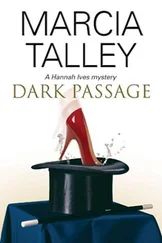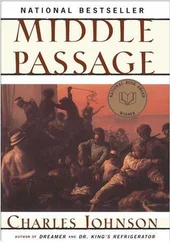Rite Of Passage
by Alexei Panshin
They that have power to hurt and will do none,
That do not do the thing they most do show,
Who, moving others, are themselves as stone,
Unmoved, cold and to temptation slow;
They rightly do inherit heaven’s graces
And husband nature’s riches from expense;
They are the lords and owners of their faces,
Others but stewards of their excellence.
The summer’s flower is to the summer sweet,
Though to itself it only live and die,
But if that flower with base infection meet,
The basest weed outbraves his dignity:
For sweetest things turn sourest by their deeds;
Lilies that fester smell far worse than weeds.
SONNET XCIV William Shakespeare
THIS BOOK IS FOR CHARLES AND MARSHA BROWN
To be honest, I haven’t been able to remember clearly everything that happened to me before and during Trial, so where necessary I’ve filled in with possibilities — lies, if you want.
There is no doubt that I never said things half as smoothly as I set them down here, and probably no one else did either. Some of the incidents are wholly made up. It doesn’t matter, though. Everything here is near enough to what happened, and the important part of this story is not the events so much as the changes that started taking place in me seven years ago. The changes are the things to keep your eye on. Without them, I wouldn’t be studying to be an ordinologist, I wouldn’t be married to the same man, and I wouldn’t even be alive. The changes are given exactly — no lies.
I remember that it was a long time before I started to grow. That was important to me. When I was twelve, I was a little black-haired, black-eyed girl, short, small, and without even the promise of a figure. My friends had started to change while I continued to be the same as I had always been, and I had begun to lose hope. For one thing, according to Daddy I was frozen the way I was. He hit upon that when I was ten, one day when he was in a teasing mood.
“Mia,” he said. “I like you the way you are right now. It would be a real shame if you were to grow up and change.”
I said, “But I want to grow up.”
“No,” Daddy said thoughtfully. “I think I’ll just freeze you the way you are right now.” He waved a hand. “Consider yourself frozen.”
I was so obviously annoyed that Daddy continued to play the game. By the time that I was twelve I was doing my best to ignore it, but it was hard sometimes just because I hadn’t done any real growing since I was ten. I was just as short, just as small, and just as fiat. When he started teasing, the only thing I could say was that it simply wasn’t true. After awhile, I stopped saying anything.
Just before we left Alfing Quad, I walked in with a black eye. Daddy looked at me and the only thing he said was, “Well, did you win or did you lose?”
“I won,” I said.
“In that case,” Daddy said, “I suppose I won’t have to unfreeze you. Not as long as you can hold your own.”
That was when I was twelve. I didn’t answer because I didn’t have anything to say. And besides, I was mad at Daddy anyway.
Not growing was part of my obvious problem. The other part was that I was standing on a tightrope. I didn’t want to go forward — I didn’t like what I saw there. But I couldn’t go back, either, because I tried that and it didn’t work. And you can’t spend your life on a tightrope. I didn’t know what to do.
There are three major holidays here in the Ship, as well as several minor ones. On August 14, we celebrate the launching of the Ship — last August it was one hundred and sixty-four years ago. Then, between December 30 and January 1, we celebrate Year End. Five days of no school, no tutoring, no work. Dinners, decorations hung everywhere, friends visiting, presents, parties. Every fourth year we tack on one more day. These are the two fun holidays.
March 9 this something different. That’s the day that Earth was destroyed and it isn’t the sort of thing you celebrate. It’s just something you remember.
From what I learned in school, population pressure is the ultimate cause of every war. In 2041, there were eight billion people on Earth alone, and nobody even had free room to sneeze. There were not enough houses, not enough schools or teachers, inadequate roads and impossible traffic, natural resources were going or gone, and everybody was a little bit hungry all the time, although nobody was actually starving. Nobody dared to raise his voice because if he did he might disturb a hundred other people, and they had laws and ordinances to bring the point home — it must have been like being in a library with a stuffy librarian twenty-four hours a day. And the population continued to rise. There was a limit to how long all this could go on, and that end was reached one hundred and sixty-four years ago.
I’m lucky, I know, even to be alive at all. My great-great-grandparents were among those who saw it coming and that’s the only reason I’m here.
It wasn’t a case of moving elsewhere in the Solar System. Not only was Earth the only good real estate in the vicinity, but when Earth was destroyed so was every colony in the system. The first of the Great Ships was finished in 2025. One of the eight that were in service as well as two more that were uncompleted went up with everything else in 2041. Between those two years we Ships planted 112 colonies on planets in as many star systems. (There were 112 at the beginning, but a fair number simply failed and at least seven acted badly and had to be morally disciplined, so around ninety still exist.)
We in the Ships learned our lesson, and though our Ship has only a small, closed population, we won’t degenerate. We won’t become overpopulated, either. We have a safety valve. Within three months of the day you turn fourteen, they take you from the ship and drop you on one of the colony planets to survive as best you can for thirty days. There are no exceptions and a reasonably high percentage of deaths. If you are stupid, foolish, immature, or simply unlucky, you won’t live through the month. If you do come home, you are an adult. My problem was that at twelve I wasn’t afraid to die, but I was afraid to leave the Ship. I couldn’t even face leaving the quad we lived in.
We call that month of survival “Trial,” and I don’t think there was a day from the time I was eleven that it wasn’t in my thoughts at least once. When I was eleven, a man named Chatterji had a son due to go on Trial, and he had serious doubts that the boy would make it. So he went to a great deal of trouble to try to ease the boy through. He found out where his son was to be dropped and then he coached him on every danger that he knew the planet had to offer. Then, before the boy left, he slipped him a whole range of weapons that are not allowed to be carried on Trial, and he advised him to find a protected spot as soon as he landed and to hole up there for a month, not stirring at all, thinking the boy might have more of a chance that way.
The boy still didn’t make it. He wasn’t very bright. I don’t know how he died — he may not have been able to cope with one of the dangers he knew was there; he may have run into something unexpected; he may accidently have blown his head off with one of those weapons he wasn’t supposed to have; or he may simply have tripped over his own feet and broken his neck — but he didn’t live to come home.
And Mr. Chatterji was expelled from the Ship. He may have died, too.
This may sound harsh — I can’t judge. It doesn’t really matter whether Or not it’s harsh, because it was necessary and I knew that it was necessary long before I was even eleven. At the time, however, this made a great impression on me, and if I had been able to force myself to face things outside the confines of the quad in which I lived I would have rested much easier.
Читать дальше



![Джон Пассарелла - Обряд посвящения[Rite of passage]](/books/79646/dzhon-passarella-obryad-posvyacheniya-rite-of-passage-thumb.webp)








